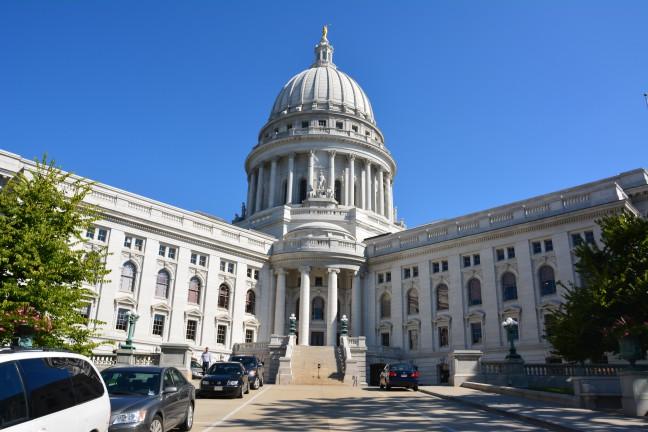Wisconsin’s one-of-a-kind Government Accountability Board could see changes this session if a bill written by Republican lawmakers passes through the Legislature.
The GAB is a nonpartisan review board that oversees state elections, campaign finance, ethics and lobbying law. Established in 2008, the GAB became and continues to be the only such body in the country. Most states have similar review boards, but are made up, at least partially, of partisan elected officials, Common Cause Executive Director Jay Heck said.
Heck said the proposal to create the GAB passed overwhelmingly in the Wisconsin Legislature in 2007 because a wide majority of lawmakers thought the former state elections board was too partisan.
The GAB was created in response to widespread illegal activity in the early 2000s on the part of top legislators and staffers that plagued the state’s elections and campaigns, Heck said.
“The GAB was established to be more effective,” Heck said. “And it has been effective over the last number of years.”
University of Wisconsin political science professor Barry Burden said driving forces behind upcoming changes to the GAB are Republican legislators who say the body is biased and unaccountable. Assembly Speaker Robin Vos has pledged the GAB will look differently after this session, Burden said.
Notably, the board assisted with the John Doe investigations that famously investigated the actions of aides to Gov. Scott Walker in two separate investigations, one during his time as Milwaukee County executive and another related to his 2012 recall election.
Many Republican legislators considered the GAB’s succession of investigations a “partisan witch-hunt” against Walker.
“They are all interrelated to the witch hunt that occurred on Governor Walker and his staff over the course of the past three years by rogue prosecutors doing things that any of us would consider unfair if you actually read the record,” Vos said during a conference on campaign finance regulation at Marquette University Law School.
The previous state elections board had more representation from political parties and was less independent, a model to which Burden said lawmakers will likely try to return.
The current model brings together the elections side and the ethics side into one regulatory body with no political appointees, which Burden said is rare among states.
“It was heralded as a model for the rest of the country,” Burden said. “It still is.”
Republican lawmakers have been dissatisfied with certain decisions the GAB has made in recent years, which Burden said is the main reason for the proposed changes.
But Burden said the GAB’s intention is to investigate political leaders and their actions, so the investigations into Walker’s office, which have not found anyone from Walkers office guilty thus far, are appropriate.
Heck said Republican lawmakers would like to see a more partisan GAB, which would benefit the currently Republican-controlled legislature and protect Walker — who is currently mulling a 2016 presidential bid.
However, Burden said these worries are more likely the result in legislators wanting more control over the GAB than any actual bias.
“I have a hard time seeing evidence of bias,” Burden said. “It has had the same director for about 40 years, only has been accused in last few years.”
The GAB currently has independent authority to investigate state elections, a privilege that would likely disappear under the proposed changes, Burden said.
Heck said the elimination of independent investigations would lead to an inherent flaw in the board.
“Without that independent ability to initiate an investigation, the GAB would have to basically get permission from legislative leaders to investigate political corruption,” Heck said.













